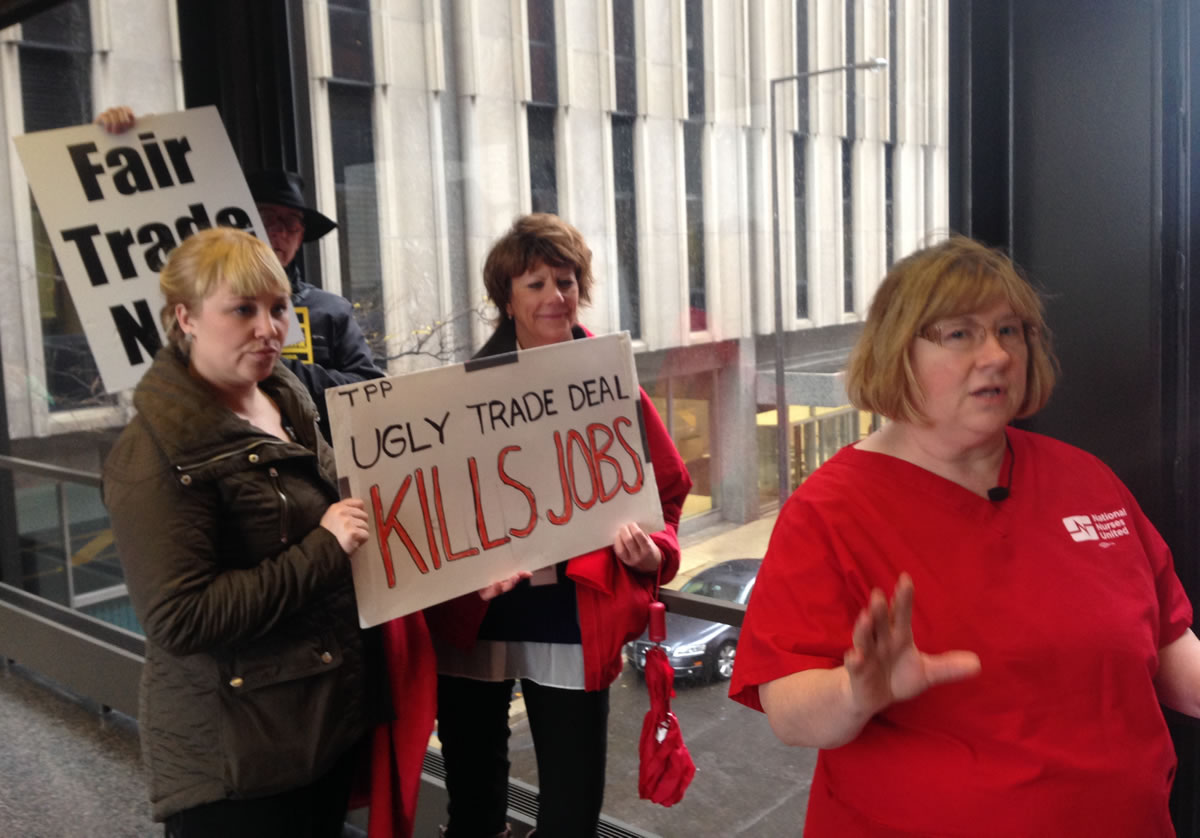

Share
A vote on the controversial Trans-Pacific Partnership is months away, but opponents are spreading the word about the hazards posed by this new “free” trade deal.
On Monday, members of the Minnesota Fair Trade Coalition carried signs and handed out leaflets in the skyway outside the State of Minnesota’s trade office in downtown St. Paul. The action was part of a national week to put pressure on Congress to oppose the TPP.
The event brought together representatives of labor, farm, environmental and human rights organizations.
“Voting for the TPP is voting against the public interest,” said Linda Hamilton, president of the Minnesota Nurses Association.
As written, the TPP would enable pharmaceutical companies to extend patents and pump up prices for medications in the United States and across the nations of the Pacific rim, Hamilton said.
“Already, people are having to choose between buying food and buying medicine,” she said. The TPP will mean fewer people could afford life-saving treatment.
Other participants cited the loss of millions of U.S. jobs and the threat posed to democracy.
The TPP could be used to override laws such as those requiring that food be labeled with its country of origin, said Doug Peterson, president of the Minnesota Farmers Union.
It would amount to “surrendering our rights as a country,” noted Matt Hollinshead, conservation chair for the North Star chapter of the Sierra Club.
The 12-nation pact would set binding rules governing approximately 40 percent of the global economy. The United States formally entered into negotiations on the deal in February 2008 and announced last month that an agreement had been reached.
The negotiations were conducted in near-secrecy, with only corporations having full access. On Nov. 5, the text for the TPP was officially released for the first time and drew condemnation from numerous organizations, both nationally and in Minnesota.
The Minnesota Fair Trade Coalition said Monday’s action is part of an ongoing campaign to educate the public about the threats posed by the TPP and build opposition to the measure in Congress.

